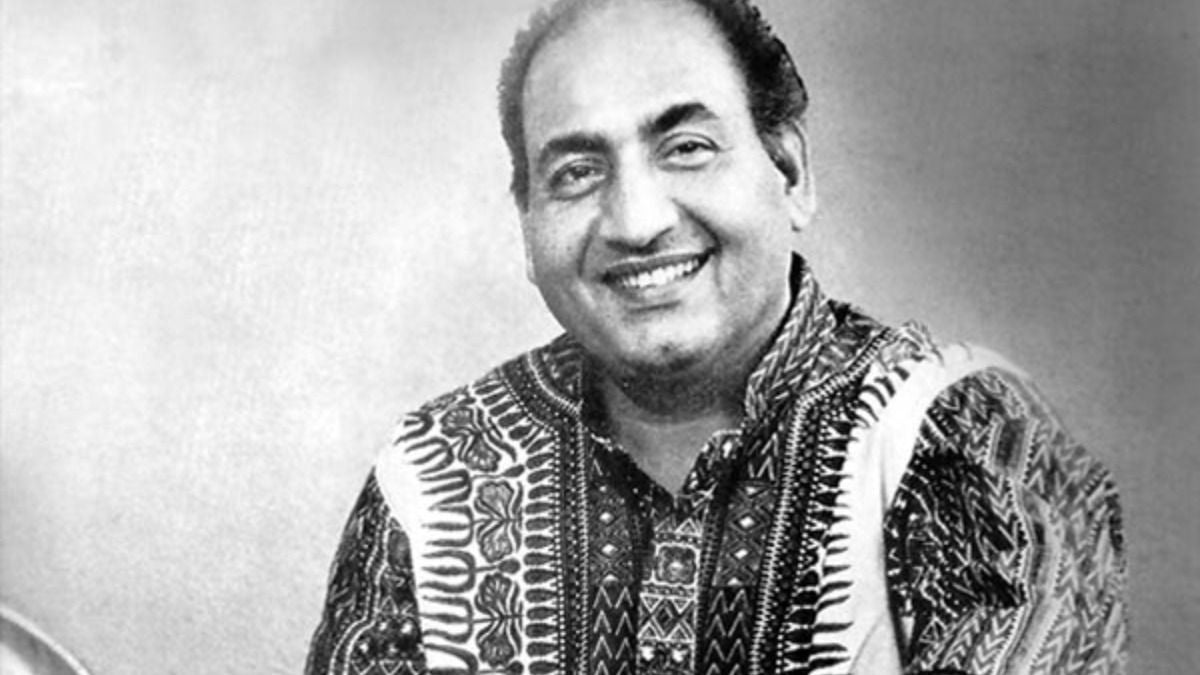Scoring a Revolution: How Rang De Basanti Gave A Generation It's Voice

When Rang De Basanti was announced in 2005, there was little indication it would become one of the most culturally significant films of its time. A.R. Rahman was already a giant, having composed for large-scale historical dramas like The Legend of Bhagat Singh and Mangal Pandey. Those scores were powerful, but they looked to the past. Rang De Basanti was rooted in the present.
India was in the middle of the UPA-I years, economically hopeful but politically weary. The RTI Act had just passed. Youth activism was bubbling, but directionless. Rang De Basanti gave it shape and vocabulary.
Rahman teamed up with lyricist Prasoon Joshi, working closely with Aamir Khan, whose fluency in Hindi and Urdu helped shape the lyrical tone. “Khalbali” was chaotic and unpredictable. “Paathshala” fused punk, hip-hop, and campus energy. “Roobaroo” sounded like a college jam session but carried the quiet charge of awakening. ESongs like “Khoon Chala” and “Luka Chuppi” felt grounded in real loss; not just cinematic grief.
The music struck a chord because it didn’t package patriotism with sentimentality. Instead, it leaned into reflection, confusion, and the slow burn of responsibility.
After the film’s release, real-world protests began to resemble Rang De Basanti. Candlelight vigils at India Gate during the Jessica Lall trial echoed the film’s imagery. News reports noted how students played “Roobaroo” through speakers while marching.
Most Bollywood music is marketed to the youth, but this was one of the rare times it nudged them toward something greater. For Rahman, the album marked a break from his older patriotic work. There were no overt classical flourishes or predictable emotional triggers. Instead, he layered folk rhythms, synthetic beats, rap verses, hushed refrains, and melodies that resisted neat resolution.
That spirit is harder to find now. The film opened up space for questions: about nationalism, civic inertia, and youth-led dissent. Today, that space feels narrower. Mainstream cinema rarely challenges power anymore.
And that silence carries a cost. When films stop asking hard questions, audiences might too.
Masti Ki Paathshaala
Naresh Iyer, Mohammed Aslam
The first song in Rang De Basanti, “Masti Ki Paathshaala” plays as Sue McKinley arrives in Delhi to cast a student film on Bhagat Singh, Sukhdev, and Rajguru, revolutionaries her grandfather once encountered as a British officer. After a series of failed auditions, she’s introduced to Sonia’s friends—DJ, Karan, Sukhi, and Aslam. The song captures their wild, aimless college lives, setting the stage for the political awakening to come.
Ik Onkar
Harshdeep Kaur
Though they warm to Sue personally, the boys reject the idea of acting in a film that stirs patriotic sentiment. Things worsen when Sue casts their rival, Laxman Pandey, as Ram Prasad Bismil, leading to a fight with DJ and nearly collapsing the project. Eventually, the group agrees to put aside their differences and begin filming together. “Ik Onkar” plays during their visit to the Golden Temple; a moment of calm, reflection, and emerging solidarity. The phrase, drawn from Guru Nanak’s Japji Sahib, means “There is only one God”.
Rang De Basanti
Daler Mehndi, K.S. Chithra
Immediately after the stillness of “Ik Onkar,” the title track erupts with energy. As filming begins in earnest, “Rang De Basanti” captures the group’s growing connection to the freedom fighters they’re portraying. What starts as performance begins to feel personal. With its pounding drums and folk-inspired rhythm, the song blurs the line between past and present, suggesting that the revolutionary spirit isn’t history, but something waiting to be lived again.
Lalkaar
Aamir Khan
“Lalkaar” plays as Sue’s film comes to life, with the boys portraying Bhagat Singh, Rajguru, Sukhdev, and Bismil in powerful recreations of events like the Jallianwala Bagh massacre and the Simon Go Back protests. They mirror the group’s growing identification with the revolutionaries. A spoken-word, poetic recitation delivered by Aamir Khan over sparse music, the track captures the moment where acting turns to belief, and the line between past and present begins to blur.
Tu Bin Batayein
Naresh Iyer, Madhushree
“Tu Bin Bataye” plays as Flight Lieutenant Ajay Singh Rathod proposes to Sonia. The song’s gentle melody and understated orchestration mirror the sincerity of their relationship, offering a glimpse into a future imagined but never reached. It grounds the story in emotional stakes, reminding us that love and loss are never far apart in the world these characters are stepping into.
Luka Chuppi
Lata Mangeshkar, A.R. Rahman
“Luka Chuppi” plays after the sudden death of Ajay Singh Rathod in a MiG-21 crash; a moment that shatters the group. The government dismisses it as pilot error, but they know Ajay died trying to save lives. Set to Lata Mangeshkar and A.R. Rahman’s haunting duet, the song becomes a mother’s lament and a nation’s quiet grief. It’s the emotional centre of the film, where loss stops being abstract and starts to feel unbearably personal.
Khoon Chala
Mohit Chauhan
“Khoon Chala” plays as the group moves from grief to rage, learning that Ajay’s death was tied to a corrupt defense deal signed by the very system he served. Karan is shaken to discover his own father’s role in the cover-up. Fueled by a sense of betrayal, the group stages a peaceful protest at India Gate, only to be met with brutal police violence. As Ajay’s mother slips into a coma, “Khoon Chala” becomes the sound of blood quietly boiling; a restrained, aching call for justice in a country that refuses to listen.
Candlelight vigil disrupted at India Gate
In a tender vigil to commemorate Ajay’s death, the group holds candles at India Gate. Peace quickly dissolves as riot police baton charge and disperse them violently. The iconic arch silhouetted against tear gas becomes a battlefield. Caught on camera, their private grief becomes a national spectacle. The imagery is reminiscent of colonial repression—yet this is modern India, and suddenly they realize the system is unresponsive and corrupt.
Khalbali
A.R. Rahman, Mohammed Aslam, Nacim
A turbulent symphony whose title literally means “upheaval.” The track blends electronic pulses, rock guitars, percussive tension, and rap-like vocal bursts. It sonically captures unrest and internal discord. Within the film, this represents the moment the group begins to understand the corrupt status quo and their own anger: a chaotic eruption of awareness that propels the transition from passive cynicism to active questioning.
Assassination of the Defense Minister
Frustrated by the cover-up of Ajay’s crash and the minister’s culpability, the group resolves to kill the Defence Minister. They research, stake him out, and carry out the assassination. Cinematically disciplined, the sequences are crisp, unemotional—an act of political theatre. This reversal from passive to militant protest marks a watershed moment in character arcs and stakes.
Final AIR Studio Takeover and Broadcast
DJ, Karan, Aslam, and Sukhi storm All India Radio and go live on air. Karan confesses they killed the Defence Minister—not for personal gain, but because he was responsible for Lieutenant Ajay Rathod’s death, suppressed the truth, disrupted a peaceful candle march, and caused Ajay’s mother to slip into a coma. He makes it clear they are not terrorists, nor backed by any group. It’s a message to the nation—to wake up, resist injustice, and stop living in silence.
Roobaroo
A.R. Rahman, Naresh Iyer
After assassinating Defense Minister Shastri and exposing the corruption behind Ajay’s death, they take over All India Radio to tell the country why. Karan broadcasts a public confession, naming those responsible, while police surround the station with orders to kill. As each member is gunned down—Sukhi, Aslam, Laxman, and finally DJ and Karan—the song plays over their final moments. Light, melodic, and guitar-led, with a breezy, soulful vocal by Naresh Iyer, “Roobaroo” captures a sense of clarity and fearlessness.
A. R. Rahman on the music of Rang De Basanti
The original ending of Rang De Basanti had the group killing the Defence Minister and going on the run. Aamir Khan felt this lacked closure and suggested a new ending where they confess their actions live on radio, urging the nation to stand against injustice. This change gave the film its moral core, turning it from a revenge drama into a powerful statement on accountability and sacrifice.
Rakeysh Omprakash Mehra On Rang De Basanti
How R. Madhavan became a part of Rang De Basanti
Rang De Basanti wins Best Film at Zee Cine Awards
2007
The film inspired the real-life candlelight protest at India Gate for the Jessica Lal case, with many drawing parallels to scenes from Rang De Basanti




Comments
Grayson Sigmund — 5 days ago
How Losing My Crypto Wallet Access Cost Me Half a Million Dollars — and How I Recovered It
I was among the early adopters of cryptocurrency. I took the time to educate myself, learned the strategies behind crypto trading and investment, and built a strong portfolio through careful planning and experience. Over time, my digital assets grew to a value of over $500,000.
Toward the end of 2025, everything changed. I lost access to my crypto wallet, and with it, my entire portfolio. In a moment, years of effort disappeared, leaving me devastated and uncertain about the future.
What felt like a crushing misfortune, however, became a turning point. Through persistence and the right support, I was able to recover my stolen assets with the help of Morphohack Cyber Service, a reputable cryptocurrency recovery firm. Their expertise and professionalism were instrumental in tracing and recovering my funds from the hackers responsible.
I strongly recommend Morphohack Cyber Service to anyone facing a similar situation. They helped me reclaim what I thought was permanently lost, and they can help others recover their digital assets as well. Reach them via E-Mail: Morphohack@cyberservices.com
Grayson Sigmund — 5 days ago
How Losing My Crypto Wallet Access Cost Me Half a Million Dollars — and How I Recovered It
I was among the early adopters of cryptocurrency. I took the time to educate myself, learned the strategies behind crypto trading and investment, and built a strong portfolio through careful planning and experience. Over time, my digital assets grew to a value of over $500,000.
Toward the end of 2025, everything changed. I lost access to my crypto wallet, and with it, my entire portfolio. In a moment, years of effort disappeared, leaving me devastated and uncertain about the future.
What felt like a crushing misfortune, however, became a turning point. Through persistence and the right support, I was able to recover my stolen assets with the help of Morphohack Cyber Service, a reputable cryptocurrency recovery firm. Their expertise and professionalism were instrumental in tracing and recovering my funds from the hackers responsible.
I strongly recommend Morphohack Cyber Service to anyone facing a similar situation. They helped me reclaim what I thought was permanently lost, and they can help others recover their digital assets as well. Reach them via E-Mail: Morphohack@cyberservices.com
Usman Bello —
ALPHA KEY BTC RECOVERY: SEEK ADVICE FROM A LICENSED CRYPTO RECOVERY HACKER
Only a small number of skilled hackers has the special hacking knowledge and abilities needed to recover lost Bitcoin. Although there are a lot of recovery websites available, it’s crucial to exercise caution because 99% of them are run by con artists who pose as trustworthy businesses. It is preferable to go for a reliable hacker who can assist you in getting your money back, such as Alpha Key BTC Recovery. I lost $326k in Bitcoin due to mining, but they were able to retrieve it. contact info below
Mail : Alphakey@consultant.com
Website : www.alphakeyrecovery.com
WhatsApp contact :15714122170
Signal contact:15403249396
morgan cynthianna —
I had a little blisters on my mouth and genital which I thought it was just normal , until my doctor told me it was HSV ( Herpes ) and it has no medical cure.I decided to try out natural stuff by giving a try to itua healer am so glad that I was able to cure my HSV2 ( Genital Herpes ) with his product. Contact him on WhatsApp +2348150223558 Email him on ituahealer@gmail.com and visit his website https://ituahealer.wixsite.com/my-site
coinsrecoveryworldwide —
Investment scams are becoming increasingly common in the world of cryptocurrency, with many individuals falling victim to fraudulent schemes promising high returns on their investments. These scams can result in the loss of significant amounts of money, leaving victims feeling helpless and devastated.
CoinsRecoveryWorldwide is a trusted and reliable resource for individuals who have fallen victim to investment scams involving Bitcoin and other cryptocurrencies. They specialize in helping clients recover their lost assets and funds through their expertise and experience in navigating the complex world of cryptocurrency scams.
CoinsRecoveryWorldwide works tirelessly to investigate and track down the perpetrators of these scams, working with law enforcement agencies and other authorities to ensure that justice is served. They provide a range of services to assist clients in recovering their assets, including legal representation, forensic analysis, and negotiation with scammers.
If you have been the victim of an investment scam involving Bitcoin or other cryptocurrencies, don’t hesitate to reach out to CoinsRecoveryWorldwide for assistance. They have a proven track record of success in recovering lost assets for their clients and can help you navigate the process of recovering your funds. Don’t let scammers get away with your hard-earned money – contact CoinsRecoveryWorldwide today for help in recovering your assets.
Contact information
WEBSITE; https://coinsrecoveryworldwide.mobirisesite.com/ EMAIL.COINSRECOVERYWORLDWIDE@GMAIL.COM WHATSAPP:+17658236083]
Aurelia Winston —
Specialist in recovery of any kind, they can help you spy on anyone on this earth and get information from anywhere at all, brillianthackers800@gmail.com is group of specialists in delivering jobs like this without stress all they need is the necessary information to get what you need, they are also available on Whatsapp +14106350697 to deliver.
Heather Delaney —
Are you searching for a real spell caster ?
It is amazing how quickly Dr. Excellent brought my husband back to me.
My name is Heather Delaney. I married the love of my life Riley on 10/02/15 and we now have two beautiful girls Abby & Erin, who are conjoined twins, that were born 07/24/16. My husband left me and moved to be with another woman. I felt my life was over and my kids thought they would never see their father again. I tried to be strong just for the kids but I could not control the pains that tormented my heart, my heart was filled with sorrows and pains because I was really in love with my husband. I have tried many options but he did not come back, until i met a friend that directed me to Dr. Excellent a spell caster, who helped me to bring back my husband after 11hours. Me and my husband are living happily together again, This man is powerful, contact Dr.Excellent if you are passing through any difficulty in life or having troubles in your marriage or relationship, he is capable of making things right for you. Don’t miss out on the opportunity to work with the best spell caster.
Here his contact. Call/WhatsApp him at: +2348084273514 "
Or email him at: Excellentspellcaster@gmail.com ,
For more information visit his website:https://drexcellentspellcaster.godaddysites.com
Marcus Henderson —
Bitcoin Recovery Testimonial
After falling victim to a cryptocurrency scam group, I lost $354,000 worth of USDT. I thought all hope was lost from the experience of losing my hard-earned money to scammers. I was devastated and believed there was no way to recover my funds. Fortunately, I started searching for help to recover my stolen funds and I came across a lot of testimonials online about Capital Crypto Recovery, an agent who helps in recovery of lost bitcoin funds, I contacted Capital Crypto Recover Service, and with their expertise, they successfully traced and recovered my stolen assets.
Their team was professional, kept me updated throughout the process, and demonstrated a deep understanding of blockchain transactions and recovery protocols. They are trusted and very reliable with a 100% successful rate record Recovery bitcoin, I’m grateful for their help and highly recommend their services to anyone seeking assistance with lost crypto.
Contact: Capitalcryptorecover@zohomail.com
Phone CALL/Text Number: +1 (336) 390-6684
Email: Recovercapital@cyberservices.com
Website: https://recovercapital.wixsite.com/capital-crypto-rec-1